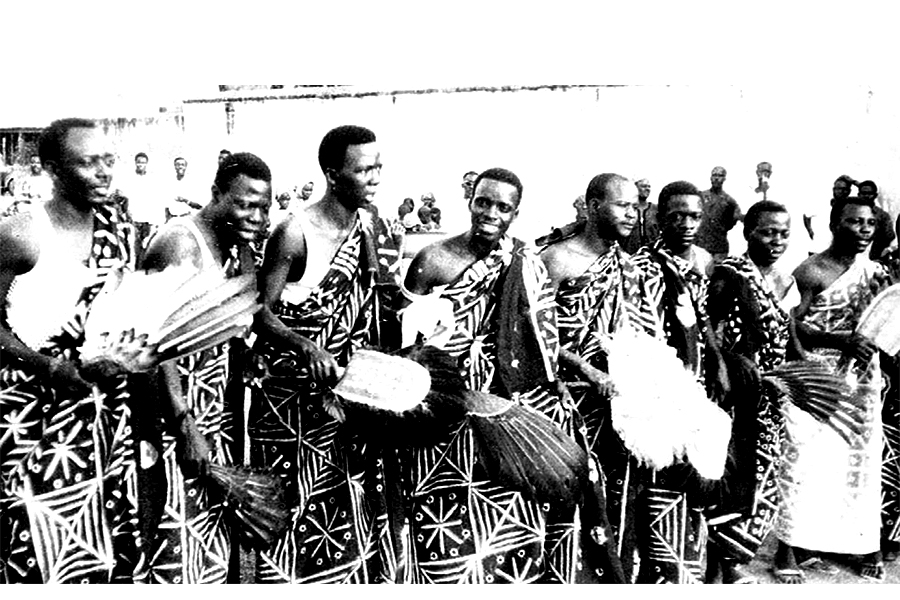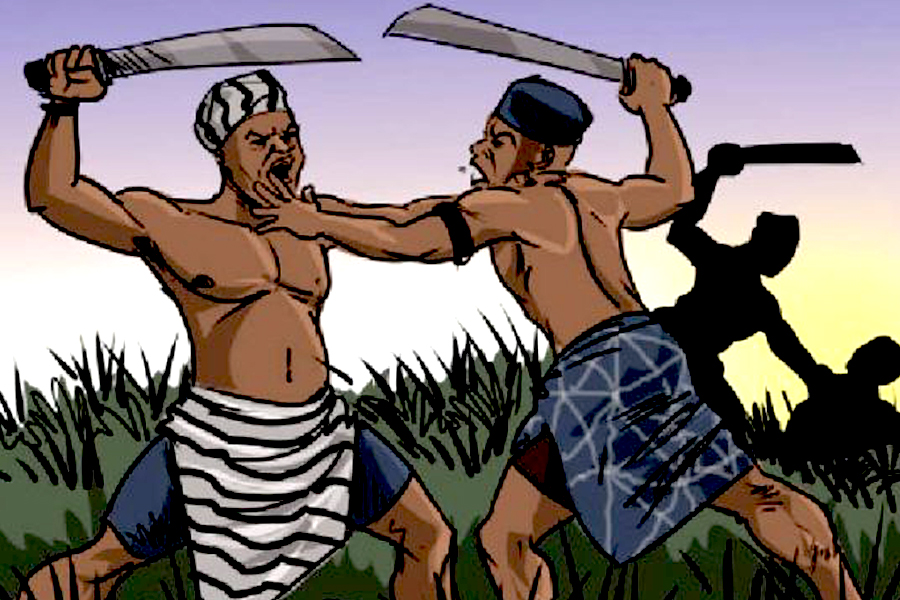
Wukari: Beauty In Its Diversity
The beauty of Wukari is that it has always been multi-ethnic. It was so long before the British incorporated it into the Northern Protectorate in 1900. The current misfortune of Wukari is caused by those who wish to create ethnic purity thereby rusticating select ethnic groups from it.
At the time the British established themselves as masters in Wukari, they called it ‘Wukari Federation.’ They couldn’t have been wrong because the ethnic composition of the place suggested it was a melting pot of many ethnic groups – “mixed together as one people” in the words of the interpreter who spoke to Ajayi Crowther on 14th October 1854. Crowther was a Christian missionary and explorer who traveled on the Benue River in a small ship named the “Plead” with Dr. Baikie and wanted to know from his informant the boundary between the Tiv and the Jukun.“
Wukari Federation” in the beginning of colonial rule was part of Benue Province and when States were created by General Yakubu Gowon in 1967, it was part of Benue Plateau State. In 1976 when there was a new states creation exercise by General Murtala Mohammed, the “Federation” was merged with Muri, Sardauna, and Adamawa Provinces to form Gongola State.

When Darius Ishaku started his policy of wiping out names of Tiv villages and replacing them with Jukun names, he was generating and not resolving conflict; When Darius Ishaku reconstituted traditional institutions in Taraba and did not consider any Tiv man worthy to be appointed even a village head, he was generating and not resolving conflict.
Then the trouble started with the Tiv. In 1976, a band of arsonists led by some traditional rulers and Local Government officials attacked Tiv villagers and sacked their homesteads on the pretext that Benue was created for the Tiv and they had no business residing in the new state of Gongola which they said was created for the Jukun. General Obasanjo, then Head of State intervened and ensured that Col Mohammed Jega, then Military Governor of Gongola State compensated the Tiv victims of that unprovoked attack. Sadly, it opened a new chapter in Jukun/Tiv relationship. From being “mixed together as one people” as described to Crowther in 1854, the Jukun and Tiv began seeing themselves as not only people of different states but inveterate enemies, perpetually at war.
Tiv/Jukun wars are cruel bush wars, fought with barbaric candor. Its savagery, brutality, destruction of life and property has always been hidden from the rest of the world for obvious reasons. The Tiv and the Jukun are not only minority ethnic groups in Nigeria; they are mostly Christians. A war between the two does not attract the kind of media attention a war between a minority and majority ethnic group would attract; it does not also attract the attention a war between a Christian and a Muslim group would also attract. The minority Christian groups can continue killing themselves in the bush. Nigeria moves on, regardless.
The endless low-grade civil war continued until it caught national and international attention in 2001. That was the year the war spilled over from Taraba to Benue. Some soldiers who were brought in to keep the peace instead joined the affray as partisans. Outwitted and captured by the Tiv militants, they were brutally butchered at Zaki Biam, a Benue town. In retaliation, the military cordoned off a whole Senatorial Zone of Benue and launched a scorched earth attack, killing innocent civilians in abundance.
After the international uproar over the events of 2001, Wukari experienced relative peace between the Tiv and Jukun. In 2010 however, the town erupted in religious conflagration, pitching the Christians against the Muslims, a sad development that has been repeated over and over again since then.
The current state of anarchy in Southern Taraba rests squarely on the shoulders of the State Governor Darius Ishaku. Every state in Nigeria is beset by ethnic and or religious disagreement. The role of the governor of a state is to seek an amicable resolution of such crisis and not to generate more heat between disputants. When Darius Ishaku started his policy of wiping out names of Tiv villages and replacing them with Jukun names, he was generating and not resolving conflict; When Darius Ishaku reconstituted traditional institutions in Taraba and did not consider any Tiv man worthy to be appointed even a village head, he was generating and not resolving conflict. One could go on and on listing his actions and even utterances that portray him as a man wearing a shabby petticoat of Jukun tribal jingoism.
On April 1 2019 there was a minor disagreement between a Tivman and a Jukun man in Kente village of Wukari Local Government. Pronto, the lynching of Tiv ethnic men and women began in Wukari, several kilometers away from Kente. It would appear as if the whistle for the eviction of Tiv people from Taraba was blown by this incidence. From Wukari, the crisis has spread to Donga, Ibi and Takum Local Governments.
Southern Taraba is in a state of aggravated anarchy. People are killed, properties are destroyed as a matter of routine. Farming activities, the major occupation of these rural folks has become a highly risky endeavor. If you are caught on the farm, it could be the end of your life.
The amazing thing is that Governor Darius Ishaku does not believe that he has an emergency on his hands. He has not visited the devastated parts of his turf; has not issued a quotable statement on the blood that is being spilled abundantly even in his own Local Government of Takum. All the banks with branches in southern Taraba have shut down their operations. The major markets in southern Taraba have all closed. Southern Taraba is crippled economically. There is still ‘no shaking’ for Darius Ishaku.
The most frightening dimension in the conflict came last week when Jukun militia invaded the Federal University established by the Goodluck Jonathan administration in Wukari. They hunted Tiv students and caught two plus a Tiv worker in the university. They were crudely and cruelly hacked to death. A university campus in any part of the world is considered a serene place for learning. When the first University was established in Nigeria in 1946 at Ibadan, it and the others that followed adopted the same tradition. When a harmless and unarmed student, Mr. Kunle Adepoju was shot and killed by a policeman during a demonstration in 1971 at Ibadan, the event was considered a national tragedy.
Credit for the massacre of students on university campuses goes to Olusegun Obasanjo who as a military Head of State ordered armed soldiers into the University of Lagos and Ahmadu Bello University to shoot and kill students during the ‘Ali must go’ anti-government demonstrations. Since then, killing university students have become almost routine.
Still the invasion of a university campus by an ethnic militia to murder students as part of the ethnic cleansing agenda is something that is novel. The authorities of the University have taken the wise decision to close it down. That decision has not gone down well with Benjamin Bako a Jukun leader who issued a press statement to the effect that the Federal University Wukari is a “prestigious University of the Jukun people” and the presence of Tiv students there is not acceptable to the Jukun.
This is very strange. It is doubtful if the Federal University in Wukari can really function as a university in its present location.
But even stranger is the reaction of Darius Ishaku to the ongoing blood-shedding in Taraba. The problems between the Tiv and Jukun predate his government. He did not cause the problems. Unfortunately, he thinks he can solve the complex problems by expelling all Tiv men from Taraba. Such a solution will not work because it is superficial, simplistic, and unscientific.
